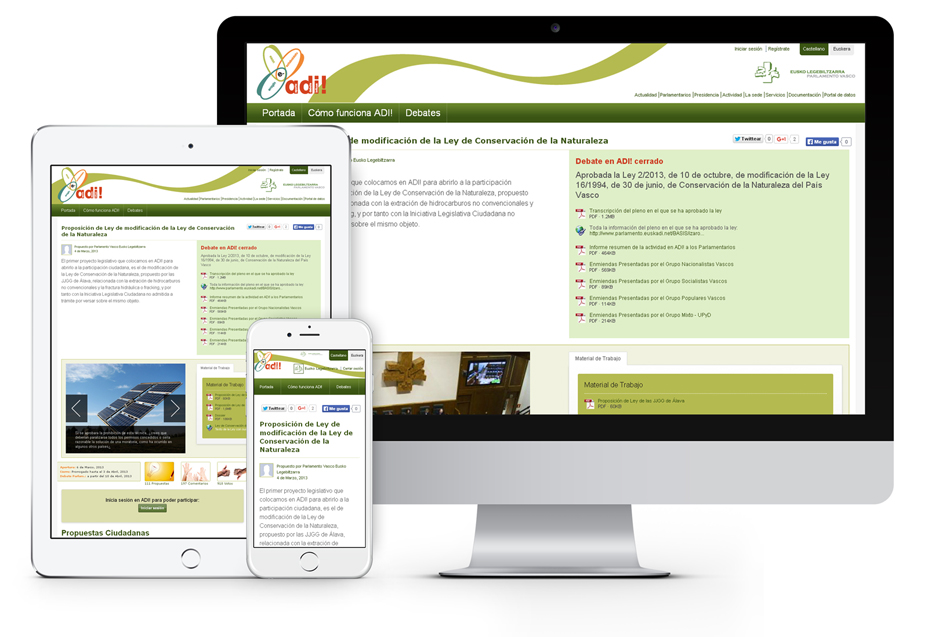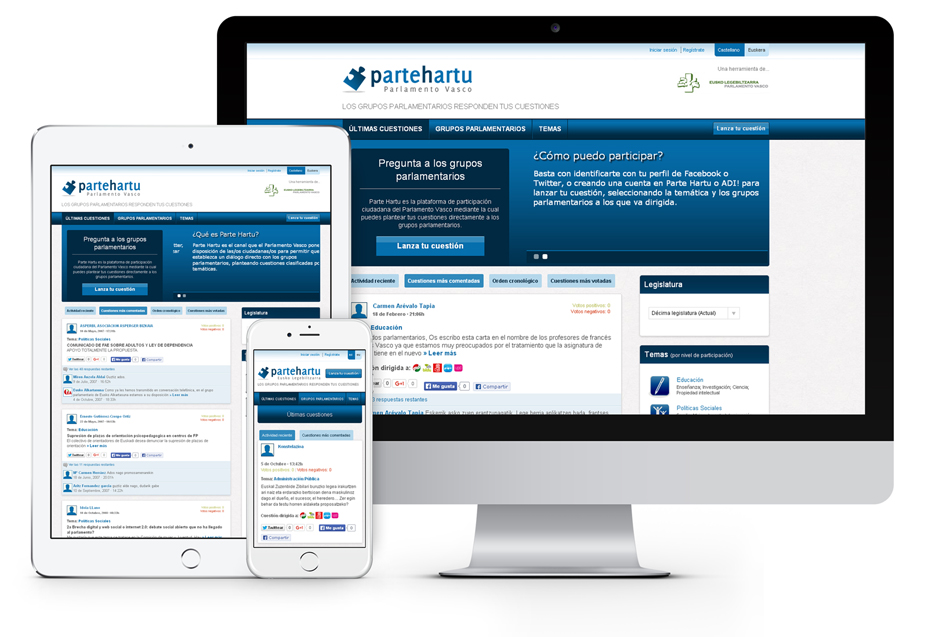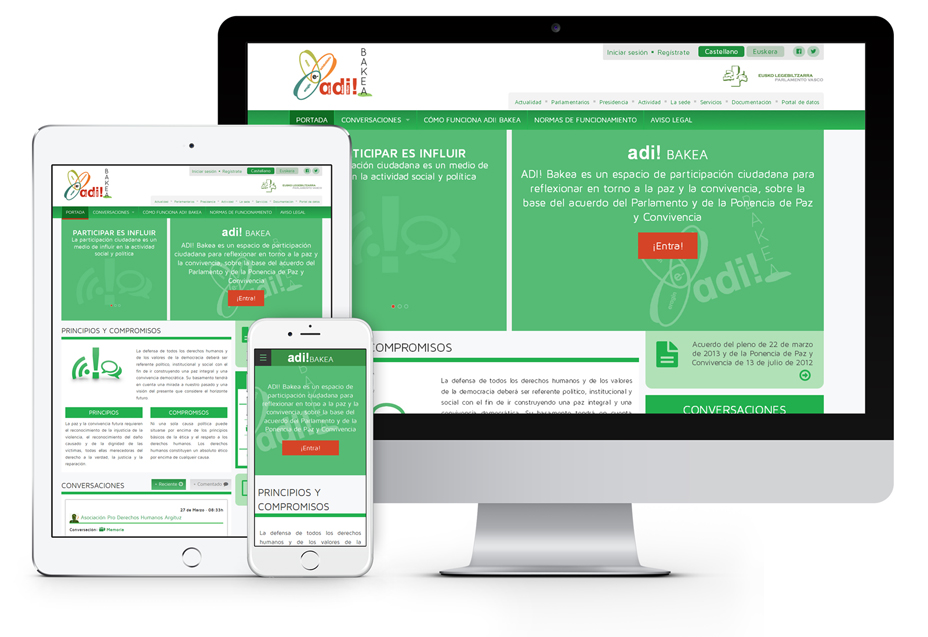Citizen Participation Platforms Development and Management
3 Platforms Successfully Integrated in Basque Parliament
With a shared engine, each platform takes advantage of the improvements in their sibilings. They are built on a custom CMS allowing also to build any kind of multi-language page structure (usually to host legal warnings, FAQs or use cases). Along with the CMS is the Participation Plaform admin panel where all modules can be managed. The frontend building is customized as it can be, beign able to implement any kind of design.
Current Version Main Points
User Sign Up
- Free or invitation based signup managed in the admin panel.
- E-mail, Facebook or Twitter based signup.
- In case of Facebook or Twitter signup the admins can ask for additional personal data such as ID card number, city, … in addition to those provided by Facebook and Twitter.
- Two user account profiles: administrator and user. Administrator have access to the Content Management System to add new static content and to the Participation modules admin. Users can signup freely in the frontend, but admins must be created only by admins inside the admin panel.
Participation
- Topics are set up by platform administrators, but there is a chance users can start one if configured so in the admin panel.
- By default a sign up and log in is required in order to take part, but this also can be configured in the admin panel and enable anonymous participation. This mode has several drawbacks though and should be used carefully.
- 2 participation levels supported in every topic: contributions and comments to each contribution.
- Each contribution can be voted for or against it so that the community selects which contributions they appreciate the best.
- Each contribution can be tagged with a set of tags selected by the system admins for a given topic. This way, administrators can easily clasify contributions for each topic when analizing participation reports and also users can filter contributions by tags. This resource can also be used to any other purpouse of interest.
- Each topic contributions can be re-order attending to several ordering constraints to a faster topic analyzing. Between these order methods we can use: recent activity, most commented contributions, chronological order, most voted or favourited contributions.
Moderation
- Each contribution publication depends on the moderation configuration setup by the administrators.
- A post-moderation model can be used wherer contributions and comments are always published as soon as they are made and it’s the community the one that flags inappropiate ones. This flags are sent to system administrators who ultimately unpublish given content.
- In a post-moderation model there is a possibility of using a publishing calendar so that contributions made inside the active calendar days and hours are published and those that are not are published in the next active hour. This gives administrators the certain that no contribution will be published in a non-active timetable.
- A pre-moderation model can also be used where system administrators must read every contribution to check them against the platform rules. This model takes a lot of admin time and lowers participation so it should be used only in special situations.
Marketing an Returning Users
- Suscription available to every single element such as topics, user, tags or contributions. Every time a resource is added the user will be notified by email and they can also unsuscribe easily via an email unsuscribe link or via web.
- Social Networking Viralization. Facebook an Twitter users can always allow to post on their social profiles about their contributions and their friends / followers can read about it and join the debate.
- E-Mail marketing. The admin panel has got an email marketing module very easy to use where administrators can design dynamic lists, send email campaigns and log every email sent to every user by the platform itself.
Web Analytics
- Evento Setup. Google Analytics is always installed (unless told not to) to measure users behavior. As the system is based on REST webservices Google Analytics events are configured to be triggered upon this cases: change language, contributions reorder, new contribution, new comment, votes, logins, signups, page printintgs and external links.
* ADI!, Parte Hartu and ADI! Bakea are registered trademarks of the Basque Parliament


